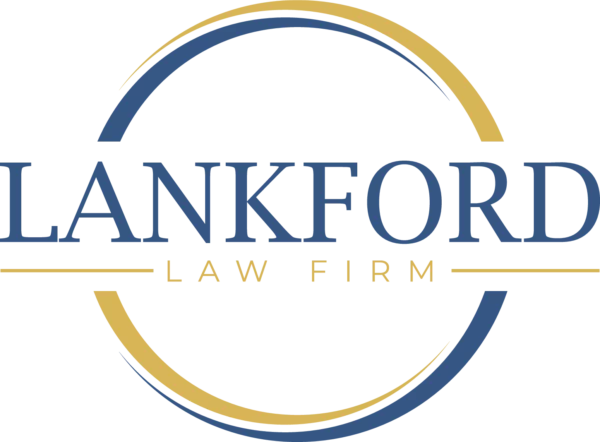What do trade secrets, trademarks, and copyrights all have in common? They’re legal terms for different types of intellectual property (IP). Your intellectual property is among the most essential elements you may possess as a business owner or creative individual. And, since it is so important, it’s wise to take the time to familiarize yourself with the different legal protections you could utilize to safeguard your exclusive rights to that IP.
There are so many different types of intellectual property that it is understandable if you are feeling a bit confused or overwhelmed. While similar, there are key differences, and using the right or wrong type of protection could be the deciding factor in terms of your long-term success.
Some lawyers make it their career focus to help clients with matters just like this. For additional legal assistance in understanding and later registering your intellectual property, please get in touch with our law firm to schedule your initial consultation.
What is a Trade Secret?
A trade secret is confidential information that, if released to the public or a competitor, would cause untold losses for a business. To be legally considered a trade secret, the information, method, formula, or data must be regarded as commercially valuable, be known to only a select number of people, and the holders of the trade secret must have taken reasonable steps to keep it secret.
Examples of trade secrets include:
- Algorithms.
- Blueprints.
- Business plans and manuals.
- Customer databases.
- Financial information.
- Formulas and ingredients.
- Industry forecasts.
- Maps.
- Manufacturing methods.
- Pricing and profit margin information.
- Research and development (R&D) data.
- Source code.
- Supplier information.
Some of the most famous examples of trade secrets include the Coca-Cola formula, the Google search algorithm, the New York Times bestseller list process, and McDonald’s Big Mac special sauce. If any of these trade secrets were released to the public or the competition, the business might experience losses while their competitors seized advantage.
To secure your trade secrets, you must sign your employees, business partners, and certain contractors and suppliers to confidentiality agreements (also known as non-disclosure agreements or NDAs). These agreements can be difficult to enforce, and it is recommended that you hire a business law attorney to draft the NDA for you.
What is a Trademark?
A trademark is a recognizable logo, phrase, word, symbol, design, signage, or another device representing a brand or business to differentiate a product or brand from others in the marketplace. You can register a trademark with the U.S. Patent and Trademark Office (USPTO) to protect your trademark and obtain exclusive rights to its use. Federal trademark registration creates an official record of your trademark ownership, prevents others from using deceptive logos in their marketing tactics, and gives you the right to take those who violate your trademark rights to court. The ™ symbol denotes a trademark.
The benefit of trademarking a logo or other branding is that it prevents the competition from unfairly using your logos against you to mislead or steal away your customers.
Trademarks can be bought, sold, or licensed to other companies under certain conditions.
Famous examples of trademarks include Capital One’s “What’s in your wallet?” slogan, brand names like McDonald’s, logos like the NBC peacock, and symbols like the Nike swoop. Not everything can be trademarked. Commonly used phrases, generic descriptive words, religious quotes, and logos too similar to already established trademarks cannot be trademarked.
What is a Copyright?
Copyrights are a form of legal protection for original works. A copyright is automatically assumed by the author of a work without the need for registration. However, registration is still recommended. If your authorship ever comes into question – or if someone tries to steal your work – an officially registered copyright will help you take the case to court and give you a better chance of winning.
Examples of works that can be copyrighted include the following:
- Blueprints.
- Business proposals.
- Choreography.
- Computer software.
- Graphic design.
- Movies.
- Music and lyrics.
- Novels.
- Paintings.
- Photography.
- Poetry.
- Screenplays.
- Sound recordings.
While a patent protects an invention or unique discovery, a copyright protects original works, usually for creatives, artists, and authors. Ideas, systems, facts, methods, and discoveries are not covered under copyright law.
One exception to who holds the exclusive copyright for an original work is when a creative talent works for hire. In such cases, the one who hired the talent-for-hire is typically viewed as the party who holds the copyright.
Do Trademarks, Trade Secrets, or Copyrights Expire?
Trade secrets persist as long as the secrets are kept or as long as the NDA remains in effect. Depending on the parties’ interests held to secrecy, a trade secret could remain secret forever.
As for a copyright, new works created after January 1st, 1978, last through the author’s lifetime and then an additional 70 years after their death.
Unlike copyrights and patents, trademarks do not have a set expiration date. Trademarks will remain in effect as long as their owner continues using them. The law requires proof that the trademark continues to be used at 10-year intervals.
Contact Lankford Law Firm to Schedule an In-Depth Case Evaluation
If you have any further questions or concerns about the different types of intellectual property protection, please get in touch with Lankford Law Firm to discuss your unique case. Our law firm is led by Lankford Law Firm, a compassionate and dedicated business law attorney with years of experience on her record. When you choose Lankford Law Firm, you can feel confident that you are choosing a more than capable legal team to handle your trademark, trade secret, or copyright legal matters.
To schedule your initial consultation, please call our Central Florida law offices at 850-888-8992.


 Call Us Now
Call Us Now Email Us Now
Email Us Now

